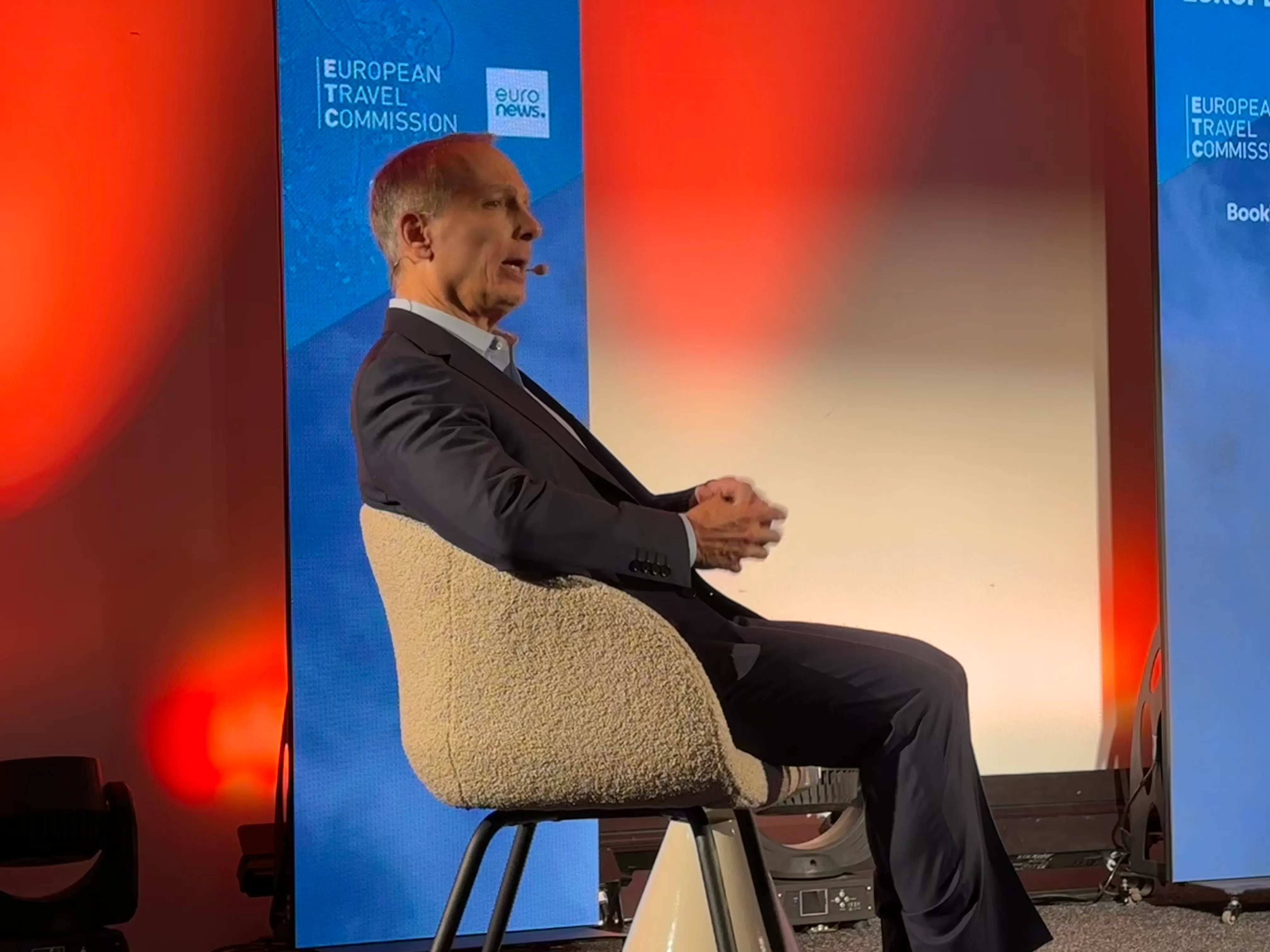Hilton CEO: Post-Election Bump for Business Travel and China Rebound

Skift Take
Hilton Worldwide has entered 2025 with increasing optimism about its growth prospects. President and CEO Chris Nassetta said he's banking on a post-election boost in corporate travel and a continued recovery in China.
"We are well positioned for another strong year, driven by sustained demand across key segments and a robust development pipeline," Nassetta said during an earnings call Thursday.
Nassetta pointed to the U.S. election results as a potential tailwind for business travel, particularly in corporate-heavy markets.
"We're super-optimistic about what's going to go on broadly with the economy," Nassetta told analysts. "When you lift above all the noise, I still believe the opportunity is broadly even better than we thought it was going to be."
Nassetta said greater clarity around the likely direction of tax and regulatory policies would give corporations confidence in making decisions and to increase business travel. He forecasted a notable uptick in business travel by major companies, particularly in the technology and banking sectors.
"There’s a growing belief that economic growth will accelerate in the near term," he said, referring to conversations he had recently had with Hilton's corporate customers, friends who run other businesses, and hotel owners.
2025 Outlook
While "January wasn't a barnburner" for Hilton bookings, Nassetta expected companies would soon spend more on corporate meetings and conventions. He also anticipated resilience in consumer spending, perhaps boosted by potential tax cuts, as a foundation for continued leisure travel spending.
The company forecasted system-wide top-line growth of 2% and 3% this year, which would be in line with its 2.7% figure last year.
It forecasted net unit growth in room count of between 6% and 7% this year, up from 7.3% last year.
Nearly half of the company's approximately 500,000-room development pipeline is already under construction.
2024 Performance
Hilton executives touted results for last year. In 2024, Hilton generated $1.53 billion in net income from $4.74 billion in revenue — after subtracting revenue it must pass on to its managed and franchised properties.
The hotel giant has topped its pre-pandemic level of profitability by cutting operational costs while boosting fees from partners and pricing power with guests. Its EBITDA margins are "more than 8,000 basis points higher than the prior peak in 2019," demonstrating what Nassetta called "super discipline" in managing costs and operations.
As for its hotel development, Hilton signed a record 154,000 rooms last year.
As of December 31, 2024, Hilton's guest loyalty program had 211 million members, a 17% increase from the previous year.
How Nassetta Thinks About AI
As Google, Expedia, and other tech players roll out AI travel planning tools, Hilton is taking a measured approach that keeps customer relationships close to home. It might be summed up as: Keep customers close, but keep tech giants at arm's length.
Rather than rushing to integrate with third-party AI booking agents, Hilton is working on weaving artificial intelligence directly into its own guest experience, from trip planning through on-property stays and post-stay contact.
"We obviously want to deal with our customers as directly as we can," Nassetta said when asked about emerging AI travel agents.
Online travel agencies handle "a relatively small percentage" of Hilton's bookings, he said, noting he wanted to keep it that way.
While Nassetta said Hilton "may work directly with a number of those players," he emphasized, "we don't want to work indirectly with some of those players" — suggesting the hotel chain wants to maintain oversight of how AI shapes guest relationships rather than becoming disintermediated by autonomous booking agents.
In other words, as a hotel company, Hilton appeared to be worried that someday some customers might essentially just tell their AI tool "book me a nice hotel in Miami" and the AI might say "here I booked you this hotel." No hotel group wants to be separated, or "disintermediated," from their customers.
Nassetta said AI will play a more central role in Hilton’s strategy over time. The hotel operator is beginning to leverage it to personalize the guest experience, optimize pricing strategies, and streamline operations, such as with some automated customer service enhancements.
China's Recovery
In China, while domestic travel remained somewhat muted in the fourth quarter, with RevPAR declining 4% year-over-year, Hilton sees encouraging signs for 2025. Hilton reported improving demand following Chinese government stimulus measures.
Nassetta said Chinese travelers are taking advantage of new visa-free zones for inter-Asia travel, which benefits Hilton's properties across the Asia-Pacific region, particularly in Japan and Southeast Asia.
"We see strong long-term potential in China," said Kevin Jacobs, chief financial officer, referring to both domestic and outbound travel. "With increasing air capacity, growing domestic tourism, and a rising middle class, we expect continued expansion in the region."
Accommodations Sector Stock Index Performance Year-to-Date
What am I looking at? The performance of hotels and short-term rental sector stocks within the ST200. The index includes companies publicly traded across global markets, including international and regional hotel brands, hotel REITs, hotel management companies, alternative accommodations, and timeshares.
The Skift Travel 200 (ST200) combines the financial performance of nearly 200 travel companies worth more than a trillion dollars into a single number. See more hotels and short-term rental financial sector performance.
Read the full methodology behind the Skift Travel 200.





